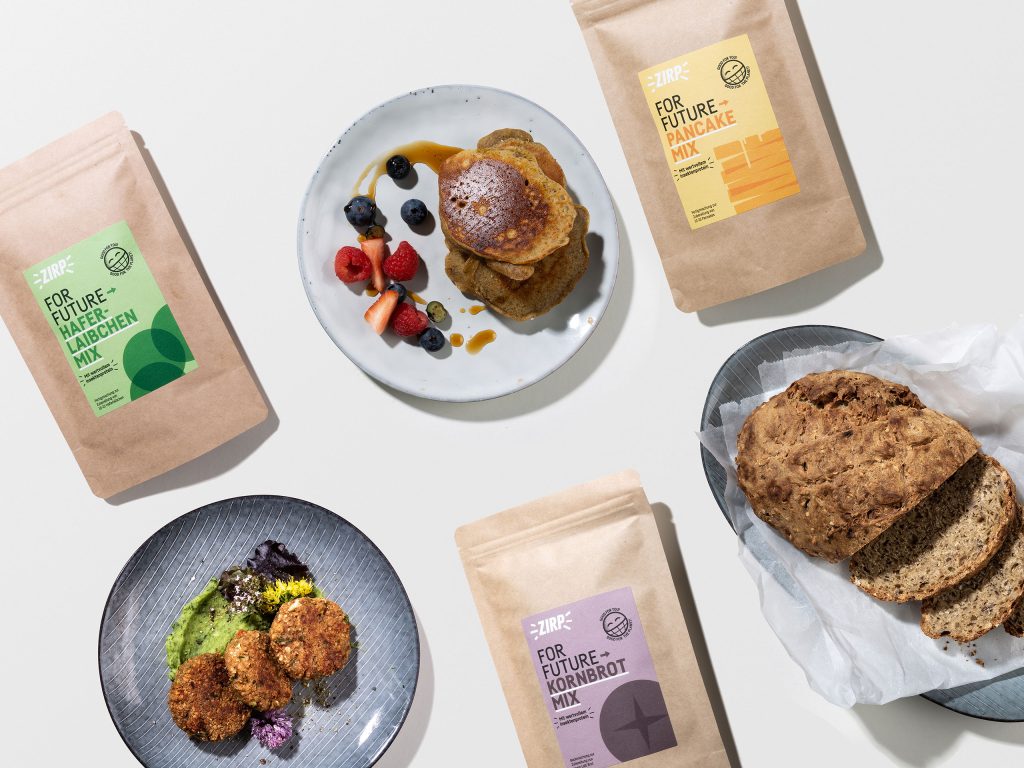
They stand for a balanced, sustainable diet whose guiding principle is not sacrifice. They are driven by curiosity. They are not afraid of food tech innovations or unusual ingredients or foods – on the contrary, they are driven by curiosity to try out new and different things. They are the avant-garde that is putting our food culture to the test and driving it forward. In future, it will be about a responsible food culture that also includes the health of the planet. Responsibility and diversity are their maxims, with which they will drive future developments in gastronomy, agriculture and the food industry and break up the patterns of our eating habits.
Insects are not only extremely resource-efficient farm animals, but also very nutritious. Insects contain high-quality protein, a high proportion of unsaturated fatty acids, vitamins and minerals such as copper, iron, magnesium, manganese, selenium and zinc. Those who shy away from cooking or processing insects can use existing ready-made products.
The Viennese company Zirp Insects wants to change people's minds and has launched various ready meals and baking mixes for an easy introduction to the world of insects: soup, falafel, risotto, oat loaf, bread baking mix as well as brownies and pancakes. The insects were completely processed into flour. It pays to try! The products taste delicious and help to make the world more sustainable.
The Protein Brewery, an innovative developer of protein-rich food ingredients, is taking the next step to contribute to a more sustainable world and a solution for feeding a growing world population. At its site in Breda in the Netherlands, The Protein Brewery has built a pilot plant for plant-based protein, equipped with a complete industrial line. The Protein Brewery uses innovative fermentation technologies to produce food proteins that can replace animals in the food chain.
The company's main product is Fermotein™, a food ingredient with excellent nutritional value. The use of very little land and water contributes to a very sustainable profile. Fermotein™ can be produced from a variety of globally available crops such as cassava, corn, potatoes, sugar cane and sugar beet, resulting in local, scalable and efficient processes worldwide.
Whether meat and fish, pasta or cookies: food printing can be used to produce food quickly, cost-effectively and in a way that conserves resources. Innovative 3D printers are used instead of traditional manufacturing processes. Food printing has immense potential. Food that contains animal ingredients in conventional production can now be produced on a purely plant-based basis (and therefore without climate-damaging emissions) with the help of bio-printing.

Vegan and reduced-sugar desserts that last, shine, and impress guests: Sugar is not the enemy, but it is not the solution either. Modern patisserie thinks ahead—more precisely, more plant-based, more consciously.
Away from the “sugar = taste” reflex, toward texture intelligence, aroma control, and clean technique. Modern patisserie works vegan, reduced-sugar—and often completely without classic table sugar. The matrix, process, and calculation are crucial. About desserts that perform professionally: stable, precise, highly aromatic.
In September, the 5,000-square-meter permaculture garden at the Falkensteiner Balance Resort Stegersbach reaches its full potential. This is when not only hotel gardener Paul Aschberger is called upon, but also chef Philipp Wildling. He quickly turns the tables and declares September to be vegan month: plant-based options become the norm and “conventional” diets with meat and milk become the alternative. With a selection of over 60 types of fruit and vegetables, as well as herbs and edible flowers, Wildling has an easy job.


They stand for a balanced, sustainable diet whose guiding principle is not sacrifice. They are driven by curiosity. They are not afraid of food tech innovations or unusual ingredients or foods – on the contrary, they are driven by curiosity to try out new and different things. They are the avant-garde that is putting our food culture to the test and driving it forward. In future, it will be about a responsible food culture that also includes the health of the planet. Responsibility and diversity are their maxims, with which they will drive future developments in gastronomy, agriculture and the food industry and break up the patterns of our eating habits.